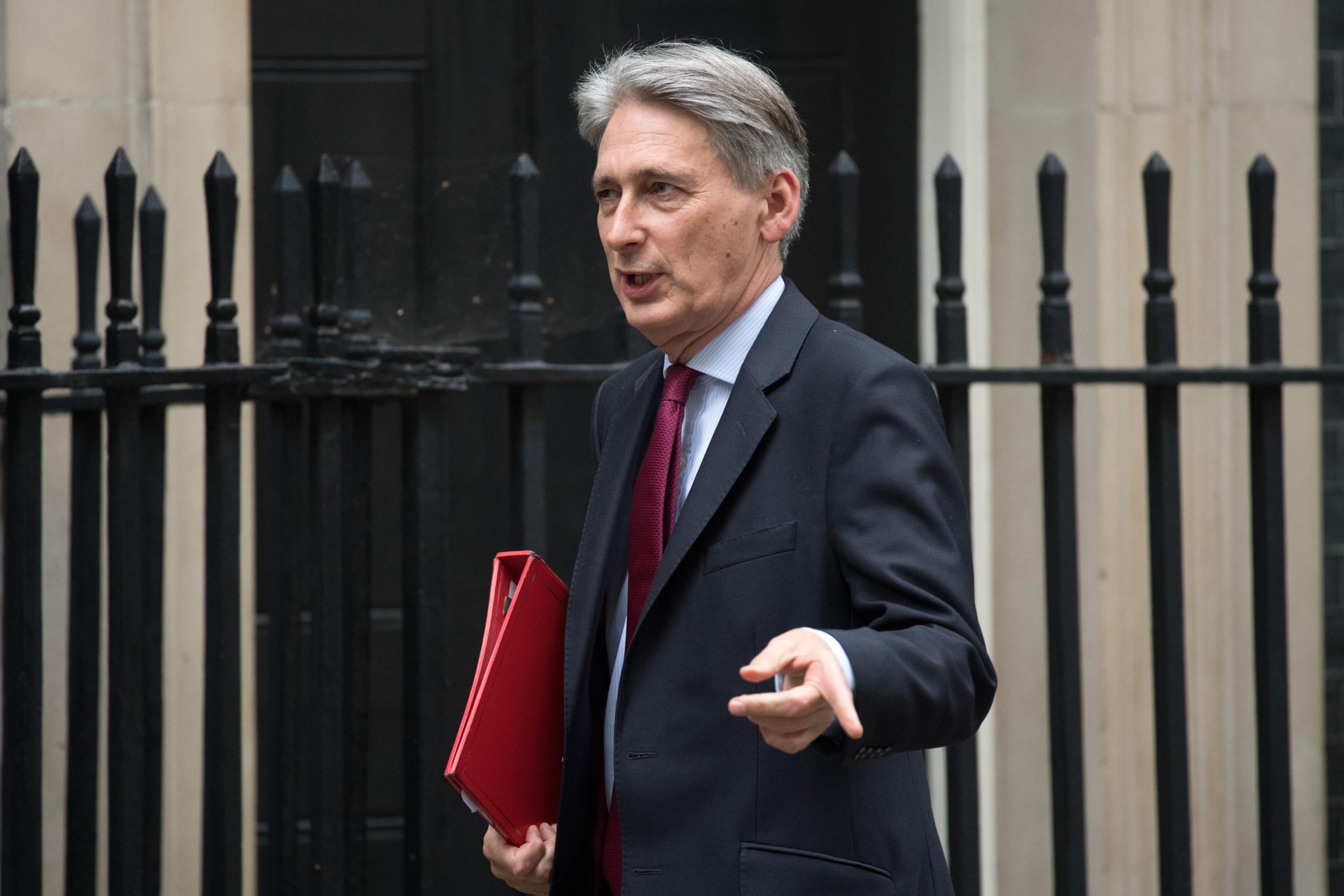Everyone is focusing on Philip Hammond's Brexit stance, when we should be worried about his forthcoming Budget
The Chancellor will need to tackle public spending, low interest rates and an overly complex tax system

Your support helps us to tell the story
From reproductive rights to climate change to Big Tech, The Independent is on the ground when the story is developing. Whether it's investigating the financials of Elon Musk's pro-Trump PAC or producing our latest documentary, 'The A Word', which shines a light on the American women fighting for reproductive rights, we know how important it is to parse out the facts from the messaging.
At such a critical moment in US history, we need reporters on the ground. Your donation allows us to keep sending journalists to speak to both sides of the story.
The Independent is trusted by Americans across the entire political spectrum. And unlike many other quality news outlets, we choose not to lock Americans out of our reporting and analysis with paywalls. We believe quality journalism should be available to everyone, paid for by those who can afford it.
Your support makes all the difference.Britain’s beleaguered Chancellor will soon has another problem on his hands. So much attention has been paid to his Brexit stance – prioritising a business-friendly outcome – that there has been little debate about the forthcoming Budget, now just over a month away.
This will be the first November Budget for the UK, as the traditional Spring Budget has been moved forward. This shift makes a great deal of sense, because it now gives reasonable time for any new measures to be implemented ahead of the financial year, which starts on 5 April, instead of the usual late March scramble. Assuming it is indeed Philip Hammond who presents this Budget, for it is not at all clear he will survive in his post, what should his priorities be?
The debate falls into two halves: the macroeconomic stance and its implications for public spending, and the detailed issues of the tax-and-benefits system that need to tackled.
On the first, there has been a great deal of debate about how much room the Chancellor has to increase spending by easing the fiscal aim of reaching a surplus during the life of this Parliament. At the moment the deficit is set to be about 3 per cent for this financial year. So far, tax revenues have held up, while public spending has been contained. By slowing the path towards a surplus, it was thought that the Chancellor had created some room for manoeuvre. But the uncertainties created by Brexit have at best narrowed that space and at worst eliminated it.
There is nothing new in a Chancellor being caught between political pressure to ease the squeeze and financial pressure to contain borrowing. What is new is the scale of the uncertainties. Right now the Treasury and the Office for Budget Responsibility are crunching the numbers to reach agreement on the most likely profile of both spending and revenues. The numbers, when we get them, will at least be “honest” in the sense that they will be free from political massaging, or Micawber-like wishful thinking. But we need to be realistic about the pressures to come. The economy has held up reasonably well, but it is pretty clear that growth has slowed somewhat. It may slow even more.
A difficult macroeconomic environment makes it all the more important for there to be skilful and sensitive handling of the detail of tax and spending. Whatever the overall pressures, there is always a case for simplification. At the moment the UK has an unusually complex tax system, with successive Budgets creating new loopholes while busily closing others. One of the aims behind moving the Budget to the autumn was to enable tax and spending policies to be framed for the long term.
Whatever your view about the optimal levels of taxation and spending, there is no case for making the system more complex than it needs to be – unless you are a tax lawyer.
The second point to be made is that interest rates are historically very low. They will be higher in the future, indeed almost certainly higher by the beginning of the next financial year. So it is an obvious time to use this cheap capital, investing it in the infrastructure that the country needs.
That is not an argument for grandiose prestige schemes, nor for dressing up regular spending as “investment”. Such investment needs to take into account the pressure on public borrowing more generally. But the UK has a huge and sophisticated capital market and it should not be beyond the ability of the financial services industry to figure out ways of financing much-needed infrastructural projects without adding to the burden on the public purse.
There is one particular form of investment, that in housing, which is crying out for action. The country needs more homes. The money is there to build them. It needs better homes. The money is there to improve the housing stock. The role of government is to clear the blockages, not by gimmicks such as Help to Buy, but rather by looking at the detail as to why the country is not meeting its housing needs. There is a role for the state, a role for the private sector and a role for housing associations and other public/private partnerships. This Budget is an opportunity for a reset.
That perhaps leads to the biggest point of all. This is a new Government that hopes to be in power for five years. This is its first Budget. It takes place against a difficult backdrop, but no more difficult than many Budgets of the past. It is an opportunity to show direction, and it would be more than sad were that opportunity to be missed.
Join our commenting forum
Join thought-provoking conversations, follow other Independent readers and see their replies
Comments